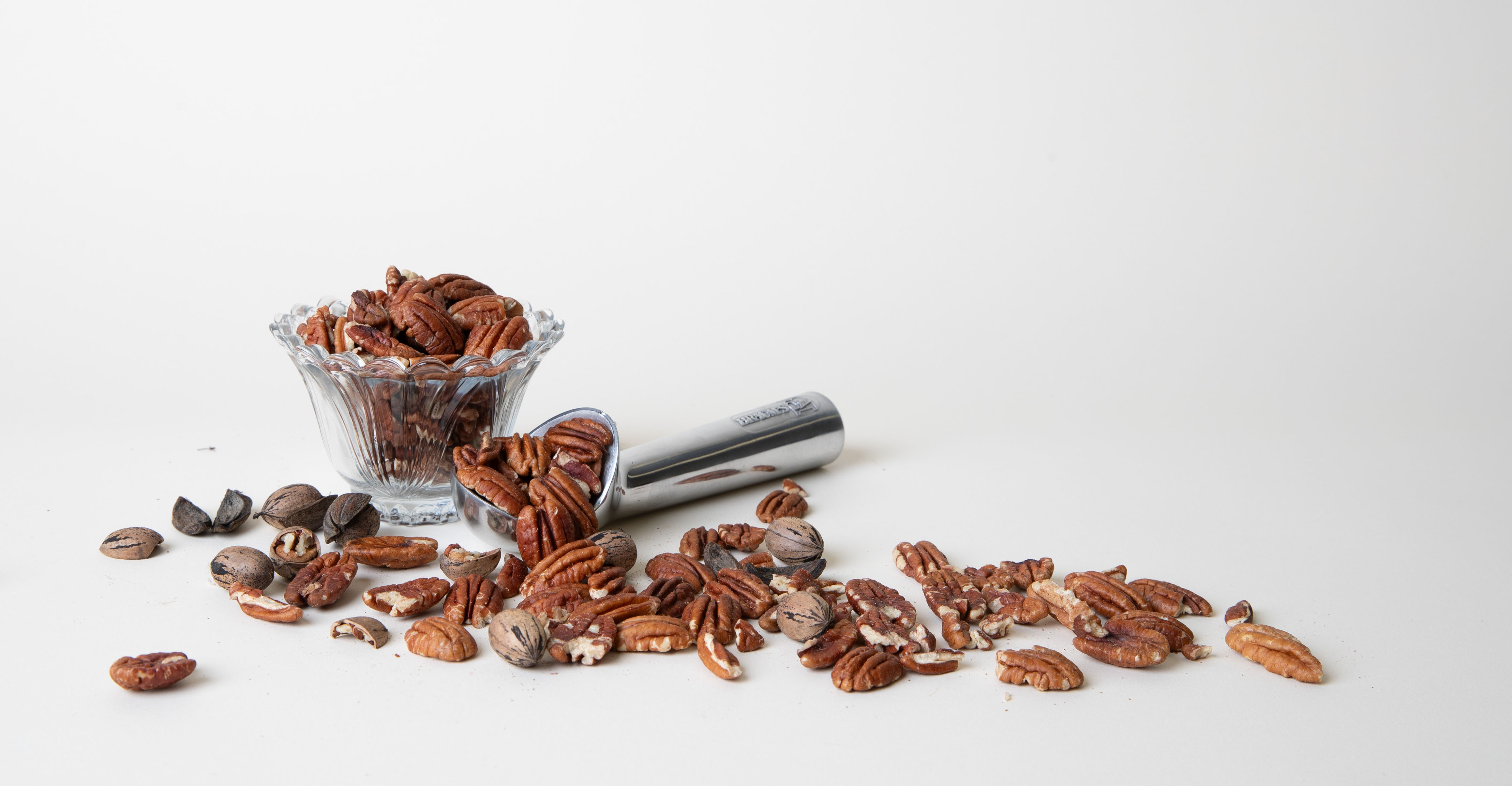
Got Pecans?: FAPC researchers work to develop pecan-based products
Tuesday, May 28, 2024
Media Contact: Sophia Fahleson | Digital Communications Specialist | 405-744-7063 | sophia.fahleson@okstate.edu
What do milk, ice cream, yogurt and butter have in common? Although dairy might be your first guess, the answer is pecans. Food scientists in the Robert M. Kerr Food and Agricultural Products Center at Oklahoma State University are developing these pecan-based products as a new alternative to traditional dairy products.
Ravi Jadeja, associate professor in the OSU Department of Animal and Food Sciences, leads the research to develop pecan milk and other pecan-based products. Xin Mei Teng, a doctoral student studying food science, and Cristina Popovici, a past Fulbright scholar from Moldova, assist Jadeja in the research.
“Our team is exploring the untapped potential of pecans,” Jadeja said.
Pecans are categorized into two types: fancy and native.
“Fancy pecans are cultivated varieties grown in managed orchards,” Jadeja said.
Native pecans have a smaller and harder shell with kernels that possess a richer and more robust flavor compared to the cultivated varieties, Jadeja added.
“Oklahoma is the largest producer of native pecans, averaging 13 million pounds of pecans each year with an average value of $20 million,” he said.
However, the native pecan industry has faced a decrease in demand, Jadeja said. Now, the development of new value-added products can help the pecan industry, he added.
“Good research starts with people,” said Richard Coffey, animal and food sciences department head. “Dr. Jadeja’s work with pecans is a way for him to help improve the economic viability and sustainability of growers.”
The research also provides dairy alternatives for those with health issues, such as lactose intolerance, allergies or dietary restrictions, Jadeja said.
With Type 2 diabetes on the rise, new food formulations are being researched heavily to help manage and prevent this disease, Teng said.
“To satisfy the requirements of diabetic consumers, we substitute the sweetener and fat with plant-based milk and alternative sweeteners in sugar-free and lactose-free ice cream,” Teng said.
Even with the health benefits, pecans are more expensive than other tree nuts, such as almonds and cashews, increasing the price of potential pecan-based products, Jadeja said.
“A more expensive nut equals an expensive product,” Jadeja said. “Large-scale production could make value-added, pecan-based products more affordable for consumers.”
From a pecan producer’s perspective, however, overproduction of native pecans results in a lower price, an issue that could be corrected through value-added products, Jadeja said.
The research team focuses on developing value-added products, such as pecan milk to create pecan-based ice cream, yogurt and butter.
“Pecan milk doesn’t exist in today’s market,” Teng said. “My main purpose for helping conduct this research is to learn how to develop a new product.”
The team’s research offers another improvement to pecan-based products, Jadeja said.
“Our goal is to extend the shelf life, increasing the appeal of the products,” Jadeja said.
Popovici, associate professor at the Technical University of Moldova, spent a year in Oklahoma beginning in October 2022. She brought valuable insight in pecan milk and pecan-based product research because of her experience conducting similar research with walnuts in Moldova, Jadeja said.
Popovici hopes to continue the practices she learned at OSU while in Moldova, keeping in contact with Jadeja and hoping to combine their efforts again, she said.
Jadeja and his reseach team have applied for a U.S. Department of Agriculture grant that would allow them to expand their research on a larger scale, Jadeja said.
If the team receives this grant, Popovici could return to Oklahoma for additional international collaboration, Jadeja added.
“As Oklahoma’s native pecan market faces uncertainties, our innovative research offers promise for the future of pecans, transforming them into valuable, health-conscious alternatives,” Jadeja said.
Story by: Paige Van Dyke | Cowboy Journal
